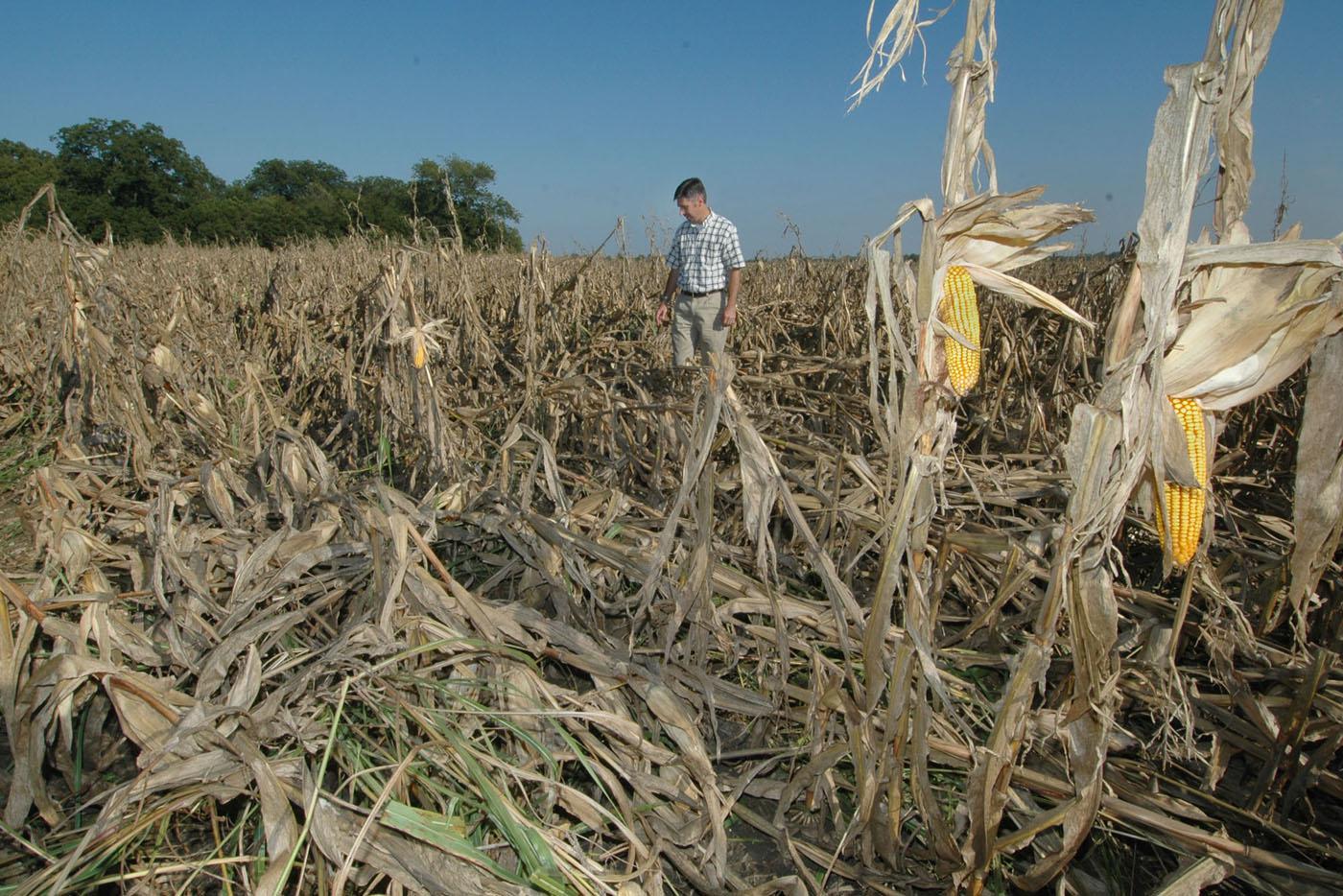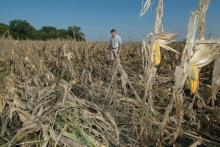Information Possibly Outdated
The information presented on this page was originally released on September 2, 2005. It may not be outdated, but please search our site for more current information. If you plan to quote or reference this information in a publication, please check with the Extension specialist or author before proceeding.
Katrina leaves damaged crops, fuel frustrations
MISSISSIPPI STATE -- Mississippi's agricultural industry may have survived the initial impact of Hurricane Katrina only to become the victim of exorbitant fuel prices if farmers can find supplies at all.
Reports from each of Mississippi's agricultural commodities seem to have the same primary concern: fuel. The state's crops facing major challenges related to the fuel situation include poultry, timber, cotton, soybeans, catfish, dairy, peanuts and horticultural crops.
For poultry, Mississippi's No. 1 crop, the crisis did not end when the winds and rains subsided. With almost 65 percent of the $2 billion industry located below Interstate 20, growers lost millions of birds during the storm.
Mike Pepper, president of the Mississippi Poultry Association, said about 80 percent of the state's 9,000 poultry houses were damaged.
"I've had reports that hundreds of houses are demolished with no chance of recovery," Pepper said. "We've lost millions and millions of chicks already. If fuel continues to be hard to find and the generators run out, we are on the verge of losing millions of birds."
Pepper said the first week or two after Katrina is pivotal for the industry's future.
"The economic impact on the people who supply and work in the industry could be catastrophic," Pepper said. "The clock is ticking."
Among Mississippi's row crops, corn may have suffered the largest damage from Katrina's initial hit. With about 30 percent harvested before the storm, the remaining fields had significant lodging from the high winds.
"The statewide corn yields may be reduced as much as 20 percent," said Erick Larson, grain crops specialist with Mississippi State University's Extension Service. "We had been on pace to set a state record yield average, surpassing last year's 136 bushels per acre."
Larson said farmers often can do wonders with harvest equipment. However, growers will need several months of dry weather to allow time to effectively salvage their fallen crop and avoid further deterioration.
"They will have to slow down and it will use up a lot more fuel. It may take five times longer to harvest the remaining corn, which will extend the harvest season for all crops," Larson said. "About 9 percent of the state's corn crop is south of I-20, and it's all flat on the ground. I'm not sure if growers will be able to harvest it."
Lodging also will be an issue for rice. With the significant financial investment already in the crop, Larson said growers will harvest as much as possible regardless of fuel costs.
Alan Blaine, Extension soybean specialist, said from a statewide perspective, soybeans may have felt the least impact.
"However, whether you are a farmer with 5 or 5,000 acres of soybeans south of I-20, the damage to your fields will be extensive," Blaine said. "We may have a 10 to 15 percent loss statewide, but in northeast Mississippi, fields may have benefitted from the rains by 10 to 15 percent. One concern was flooding from the heavy rain, but waters did subside within 24 hours."
Tom Barber, Extension cotton specialist, said results of Katrina varied greatly statewide.
"We may have a statewide loss of up to 20 percent from cotton being blown off the plants and now boll rot and similar issues are going to hit," Barber said. "In some areas of the South Delta, selected fields may have 40 to 50 percent losses, some as high as 70 percent. We haven't been able to communicate with Extension agents in some counties, but I would anticipate total cotton losses in some places."
Mike Howell, Extension area agronomic crops agent based in Covington County, said peanuts should not have experienced significant damage, but the lack of fuel may prevent harvesting and transporting the crop, which normally goes to market in Mobile.
Norman Winter, Extension horticulturist, said he has had difficulty reaching nurseries and garden centers in South Mississippi.
"I've heard of entire poinsettia crops lost and mums damaged. What hurts the worst is losing the markets of the casinos and New Orleans," Winter said. "Right now, the gasoline crisis will impact shipments in and out of the damaged area. Plus, growers need fuel to power the generators to water their crops."
Jim Steeby, Extension catfish specialist, said catfish were spared any damage from loss of power to oxygenators.
"High winds during the initial power outages and during the storm helped keep the oxygen levels up in the ponds," Steeby said. "If we had had major outages with temperatures this high, we would have been on the ropes. We definitely dodged the bullet, at least in the short term."



